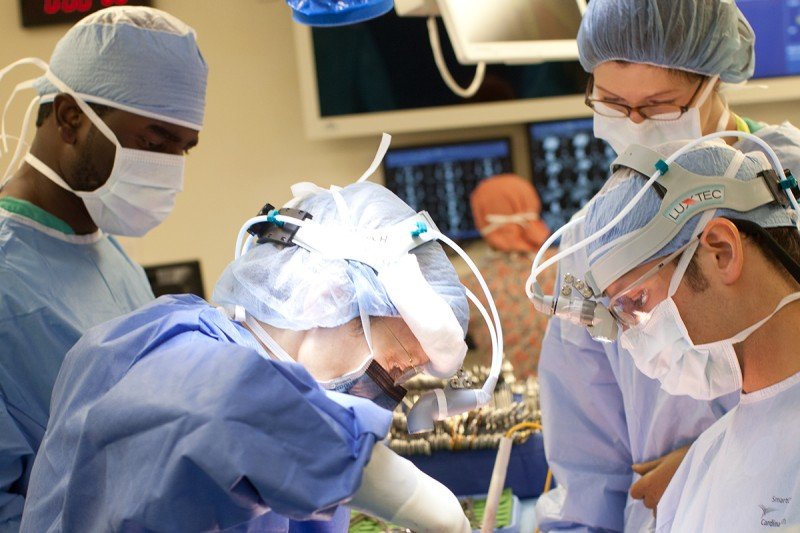
Improving Care for Mesothelioma: For the best outcome for pleural, peritoneal, and other forms of mesothelioma, it’s important to get an accurate diagnosis and excellent surgical care when symptoms first develop.
Mesothelioma is a cancer that affects tissue called the mesothelium, a lining that covers and protects many internal organs. Pleural and peritoneal mesothelioma account for most of the 2,000 to 3,000 new cases of the disease diagnosed in the United States each year. Less common types of mesothelioma include pericardial mesothelioma, which affects the lining surrounding the heart, and testicular mesothelioma.
There are two main types of mesothelioma. The type you have depends on which kind of tissue the cancer begins in.
Pleural mesothelioma affects the pleura, a membrane that protects your lungs.
Peritoneal mesothelioma affects your peritoneal membrane, the tissue that surrounds your abdominal organs.
The most common cause of mesothelioma is exposure to asbestos. This building material was once regularly used for insulation and fire prevention. Asbestos exposure can also lead to a similar but noncancerous disease, asbestosis.
There are other risk factors for mesothelioma as well.
Pleural Mesothelioma
Pleural mesothelioma is the most common type of mesothelioma, accounting for about 75 percent of all cases diagnosed in the United States. It affects the pleura, a membrane that protects your lungs. Sometimes pleural mesothelioma spreads (metastasizes) and affects your outer chest wall, lymph nodes, and other parts of the body.
Memorial Sloan Kettering created the multipronged approach to treating this disease, combining surgery to remove cancerous tissue with chemotherapy and/or radiation treatment. Our radiation oncologists have developed cutting-edge techniques, such as intensity-modulated radiation therapy (IMRT). IMRT allows us to target tumors along the entire pleura (membrane) very precisely while minimizing damage to nearby organs.
Quick and accurate diagnosis is very important with pleural mesothelioma so that valuable months and even years aren’t lost for giving you the best treatments and opportunities for possibly taking part in clinical trials.
Peritoneal Mesothelioma
Peritoneal mesothelioma affects the tissue (membrane) that covers and helps lubricate your abdominal organs. This tissue also helps keep your abdominal organs in place. Peritoneal mesothelioma accounts for 10 to 20 percent of new mesothelioma cases diagnosed in the United States each year.
In most cases, experts are still not sure why people develop peritoneal mesothelioma. Asbestos and radiation exposure are risk factors. So is having chronic peritoneal inflammation. However, most people have no risk factors.
Because peritoneal mesothelioma is rare, it sometimes goes undiagnosed for long stretches of time. If your doctor suspects that you have the disease, it’s best to meet with one of our mesothelioma specialists, who are experienced in diagnosing and treating this condition.
He or she will examine you and work with an MSK pathologist with expertise in identifying mesothelioma cells and determining which subtype you may have.
The major subtypes of peritoneal mesothelioma are:
- well-differentiated papillary mesothelioma
- epithelial mesothelioma
- sarcomatoid mesothelioma
- mixed (also known as biphasic) mesothelioma
Once your treatment team has identified your subtype, we can prescribe a treatment plan customized for you. For example, within the epithelial subtype alone, there are varying grades of disease. And if you have the subtype known as well-differentiated papillary mesothelioma, you may need limited treatment, such as monitoring with a radiology test.
Multiple Experts and a Team Approach
Most doctors and oncologists see very few people with this relatively rare cancer. The symptoms are often misdiagnosed as lung cancer or another illness. This can result in the loss of valuable treatment time that can affect your outcome.
As a hospital with one of the nation’s largest volumes of patients with mesothelioma, we offer a unique level of expertise in diagnosing and treating people with this disease, whatever stage or type it may be. We can find solutions for you.
Because all of our mesothelioma experts work together so closely — we meet every other week to strategize on options for new as well as established patients — we’re able to give you the treatment strategy most likely to work for you. We’ll often turn to our very large patient database on pleural and peritoneal mesothelioma for help in guiding us on who might benefit most from various types of surgery, for example. It can also help us in deciding which clinical trial to recommend.
Our patients also benefit from the fact that we do so much research at MSK and know the latest about vaccines, immunotherapy drugs, cutting-edge radiation techniques, and other novel ways of identifying and treating mesothelioma.
We work hard to improve the quality and length of life of people with mesothelioma. We offer the newest in pain management and relief from other symptoms, along with a follow-up care and survivorship program that can help keep you active and feeling cared for as long as possible.


